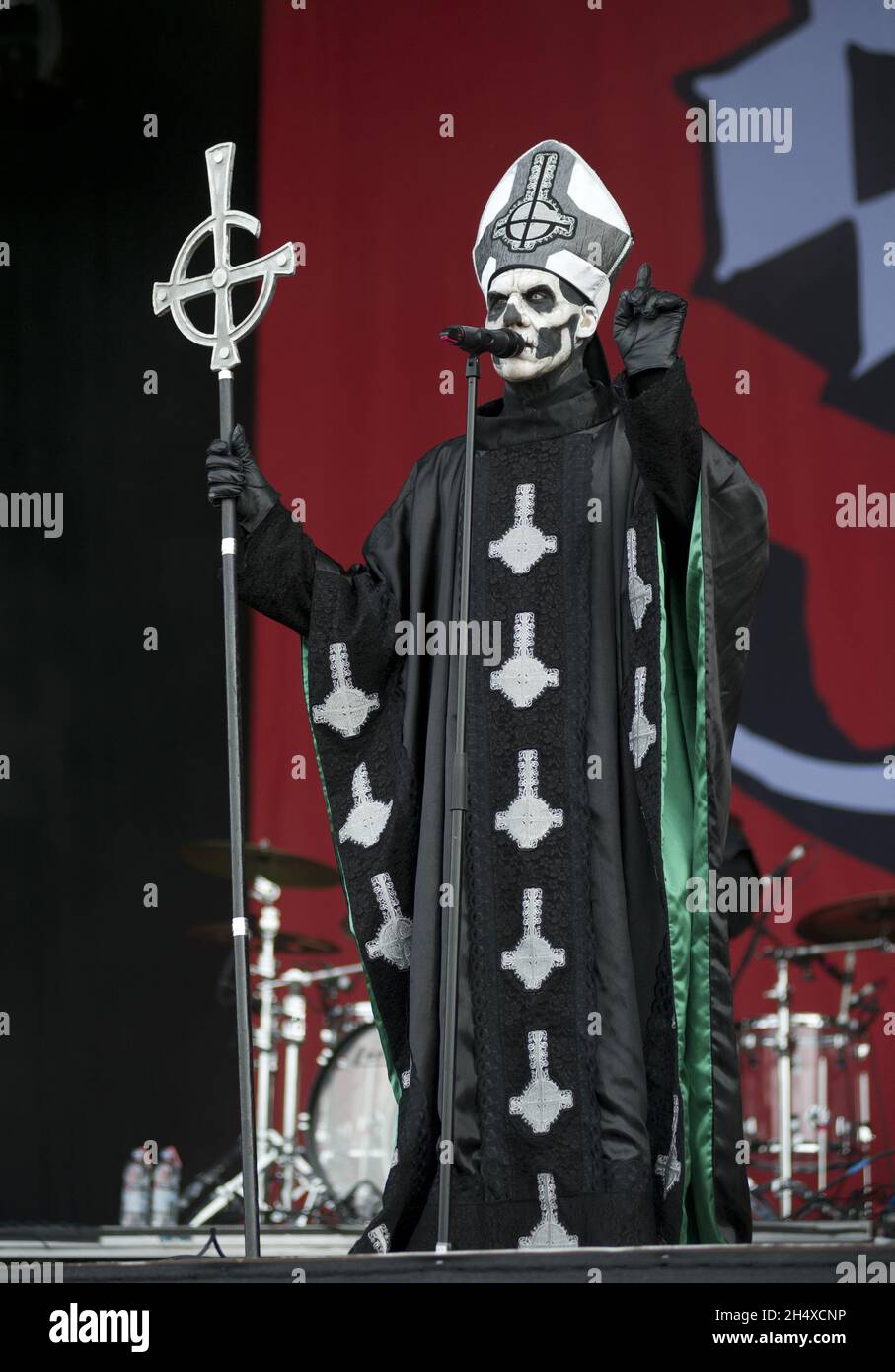Benedict is Pope Emeritus. Would Francis be Pope Emeritus Secundus? Pope Emeritus Minor?
My understanding is that the use of “Emeritus” is simply a label that might apply to all people who fit the condition - it’s not a title that can only be used by one person at the same timne.
Pope Emeritusito
Frank
Yeah, there’s only one person who is the Pope, but there can be any number who were the Pope. It’s like asking what Obama’s title is, since Carter is already “Former President”.
He’ll also be Pope Emeritus. At one point in the early 2000’s there were three Catholic bishops emeriti of Taipei simultaneously. They didn’t seem to have any problems having the same title.
FWIW, Benedict was the first Catholic pope to have left office via resignation (rather than death) since the 15th century, and the first to have done so willingly since the 13th century.
Also, this article indicates that Benedict, himself, chose the title; it’s not clear to me if it had ever been used previously – and, obviously, there’d been no call for such a title for 600 years.
Why wouldn’t it apply? Emeritus is just a title indicating someone used to be… Universities call all their retired faculty “professor emeritus” and I understand that’s common for a number of other professions, either formally or informally.
I give Benedict credit for recognizing that the job needs to be done by someone with the energy and the determination to change it - and with modern medicine, people no longer typically ring down the curtain and join the choir invisible in their 60’s or 70’s the way they used to. An organization like the church cannot afford a decade or two of inactivity at the top while the leader is too old. He’s basically turned it from a medieval monarchy more toward being a modern corporation.
I think this differs by jurisdiction, but where I come from (Germany), becoming emeritus is a special form of retirement. Emeriti retire at full pay and retain some of their previous privileges, such as being supervisor to PhD students, but their teaching obligations cease. They also get to keep an office on university premises. Since then, budget cuts have abolished the privilege of emeritisation, so that only professors appointed prior to that point are grandfathered, whereas more recent appointees retire in accordance with the same rules applicable to other jobs.
Generally, I think, the word “emeritus” carries the connotation of a particularly honourable way of retirement, and that is why monarchs such as Benedict, Juan Carlos and Akihito have chosen it upon their abdication.
I don’t think it’s outside the bounds of this forum to also note that Benedict was embroiled in the controversy surrounding sex abuse by catholic priests, in that he shielded wrongdoers from accountability.
It’s not unreasonable to speculate that his retirement was done to avoid any fallout from these matters.
[Moderating]
This is not the place for discussing Benedict’s reasons for leaving the Papacy.
The main point is, he set the precedent for the pope to step down - as mentioned, something not contemplated for the last many centuries. Thus, future popes will not be feeling, like Elizabeth II, that retirement/abdication is unthinkable.
“Yeah, but when we elected FDR we didn’t know he’d hold onto the job like a pope…”
-Archie Bunker
The fact that he set the precedent (or at least, the modern precedent) is relevant for this thread, and is on-topic. The reasons why he did so are subject to speculation and are likely to lead into ugly debate, and so are off-topic for this thread.
Other on-topic questions include (but are not limited to) what other figures are titled “emeritus”, and what titles were used, centuries ago, for previous resigned popes.
